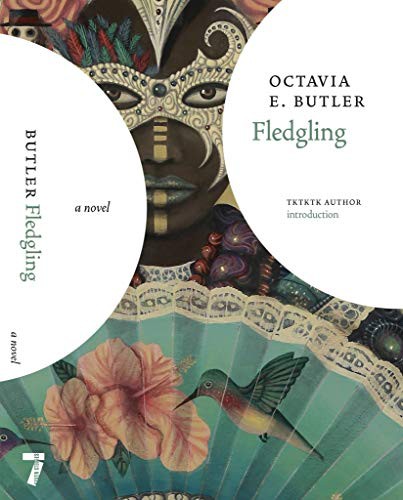juliana@books.solarpunk.moe reviewed Fledgling by Octavia E. Butler
Read it, you'll like it
5 stars
I just finished this book, and it was good. I plan to read everything else Butler wrote, too, in time, so I'll reserve comments on her broader writing and personality for when I feel like I know them a bit better. She was a self-described hermit who seems to have shared many of my mental struggles, so I suspect we'll get along fine.
The writing in Fledgling felt a bit sparse and rudimentary, which is apparently a mark of her style. It reminds me of Carver's poetry a bit. I haven't made up my mind on whether I like it in fiction yet, but I certainly liked Fledgling. It's the kind of vampire story I think I've always longed for, one where vampires aren't predators but simply beings with different lifeways, who are as capable of harm as they are of helping, and whose long memories and lifetimes have led …
I just finished this book, and it was good. I plan to read everything else Butler wrote, too, in time, so I'll reserve comments on her broader writing and personality for when I feel like I know them a bit better. She was a self-described hermit who seems to have shared many of my mental struggles, so I suspect we'll get along fine.
The writing in Fledgling felt a bit sparse and rudimentary, which is apparently a mark of her style. It reminds me of Carver's poetry a bit. I haven't made up my mind on whether I like it in fiction yet, but I certainly liked Fledgling. It's the kind of vampire story I think I've always longed for, one where vampires aren't predators but simply beings with different lifeways, who are as capable of harm as they are of helping, and whose long memories and lifetimes have led them to develop more cooperative than dominating ways of being. This is what I would like to believe long-lived people would be like, given enough history to learn from.
Early on reading the book, I commented elsewhere that I feel like the characters aren't well-developed. They feel like two-dimensional prop pieces for the story more than living beings. Other books I like well enough have a similar vibe, though, especially in science fiction (thinking here particularly of Asimov's Foundation series), and I don't mind it much because the story is so good anyway.
Ultimately I'd say, read it if you haven't. Butler is a legend for a reason. And if you like vampire stories, this is the best I've read so far.


